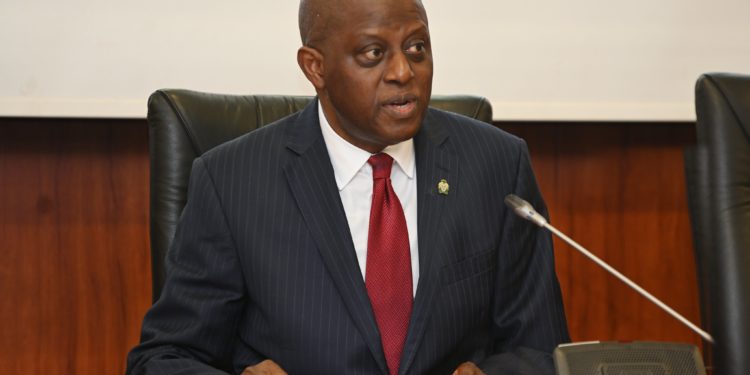Nigeria’s central bank has made a drastic move to rein in spiralling inflation, raising its benchmark interest rate by a huge 400 basis points to 22.75%.
The Monetary Policy Committee announced the decision at its first meeting of 2024 as consumer price inflation hit nearly 30% in January. Committee members said “the balance of the argument thus leaned convincingly in favour of a significant policy rate hike to drive down inflation substantially.”
Central bank governor Olayemi Cardoso said “the options available for decision was to either hold or hike the policy rate to offset the persisting inflationary pressure.” The bank had raised rates several times already last year but inflation kept climbing.
Cardoso said previous hikes “have slowed the rise in inflationary pressure but not to a desirable extent.” The committee concluded that without a substantial hike, “inflation could become more persistent in the medium-term.”
The bank is also moving to curb exchange rate pressures which are feeding into inflation. It pointed to “distortions in the foreign exchange market including the activities of speculators” and the high pass-through to consumer prices.
Reforms underway in the forex market “will yield the desired outcome in the short to medium term,” Cardoso said. These include promoting a “willing buyer willing seller” system and new rules to increase transparency.
Headline inflation hit 29.9% in January, driven by food inflation of over 35%. The Central Bank of Nigeria forecast it will “remain on an upward trajectory in the near term before commencing a descent.”
Cardoso applauded fiscal policy initiatives by the government to reduce costs for citizens. But he said “non-monetary factors driving inflation such as the persisting insecurity and infrastructural deficits” also need addressing.
The Central Bank of Nigeria has moved firmly to anchor inflation expectations and avoid further de-anchoring. But the massive rate hike risks slowing Nigeria’s economic growth, forecast at around 3.5% this year.

















